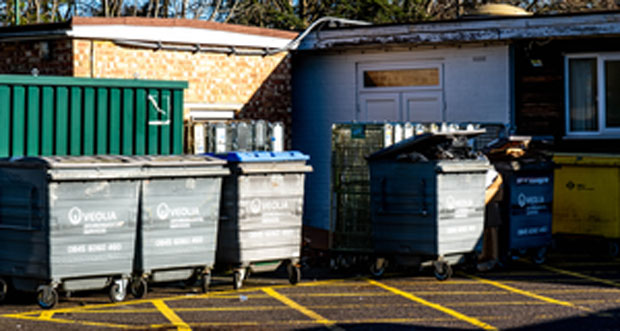The Competition and Markets Authority (CMA) has today (25 August) ordered Veolia to sell three businesses after an in-depth investigation into the company’s takeover of Suez concluded the merger gives rise to competition concerns in a number of markets.
The CMA has concluded that Veolia must sell substantial parts of the merged business: Suez’s UK waste management services businesses, Suez’s UK industrial water operation and maintenance services business, and Veolia’s European mobile water services business. The CMA says that these businesses make up almost all of the overlap between Veolia’s and Suez’s competing operations in the UK.
In response to the provisional findings of the Phase 2 inquiry, Veolia said that it would sell the UK Suez waste business, and has announced the execution of a unilateral put agreement whereby Australian firm, Macquarie Asset Management irrevocably undertakes to acquire 100 per cent of the share capital of Suez Recycling and Recovery UK Group, regrouping Suez waste activities in the UK. The sale proceeds will amount to approximately €2.4 billion.
The CMA will now determine the conditions of the sale, as well as the sales of the two water services businesses.
Veolia and Suez are both global players in waste and water management. In 2020, the companies generated approximately £2 billion and £1 billion in the UK respectively – roughly 10 per cent and seven per cent of their annual global revenues.
Veolia and Suez are active across the full waste management supply chain. They collect waste from households and businesses, sort it for recycling and composting and dispose of the remaining waste – some of which is incinerated to produce electricity. Many local authorities in the UK rely heavily on either Veolia or Suez to meet their waste management needs. The companies also supply water and wastewater management services to industrial customers.
Throughout the investigation, the CMA heard from a number of councils and customers who were concerned about the potential impact of the merger on the cost and quality of the services they receive. Ultimately, taxpayers and businesses would have been left to cover any increase in cost.
Stuart McIntosh, Chair of the CMA inquiry group, said: “Local authority budgets are already under strain, and this deal is likely to lead to them paying more and receiving a lower-quality service. The negative impact would have ultimately fallen on taxpayers at a time when they are feeling the pressure of the cost of living crisis.
“Given our concerns about the merger, we have concluded that Veolia must sell most of the operations it took over in the UK when it acquired Suez. We will now work with Veolia to ensure that appropriate buyers are found so that businesses, councils – and ultimately taxpayers – will not lose out.”
The CMA’s final report, published today, confirms its provisional findings issued in May. It rules that the merger would lead to competition concerns in five waste markets and two water treatment markets. In each of these markets, the merging businesses currently compete closely and would face limited competition after the merger. The CMA found that this would be likely to result in higher cost or lower quality services for councils, with knock-on effects for taxpayers, as well as businesses across the UK.
The CMA launched an investigation into the deal between Veolia and Suez in October 2021. The transaction was referred for an in-depth Phase 2 review, which is led by an independent inquiry group, in December 2021.
This deal has been reviewed by a number of competition authorities across the world. Major divestments were also required in the EU and in Australia.
While some personnel are finally returning to the office – the great majority of organisations (up to 83 per cent) anticipate a hybrid mix of on-premises and working from home to continue for the foreseeable future.
This means that when it comes to providing access to the workplace, where once it was simply enough to maintain a welcoming reception for visitors, organisations today must also keep a close eye on access permissions in real-time to keep buildings safe and secure while ensuring they comply with compliance.
Pitney Bowes Smart Access Management in association with FMJ has produced a new White Paper which explains how to create a welcoming, actively managed environment for authorised people.
It explains how new Smart Access Management™ (SAM) delivers a complete, real-time and data-driven view of all your people, visitors and contractors, to help give you greater control and visibility.
To download the white paper click here.





